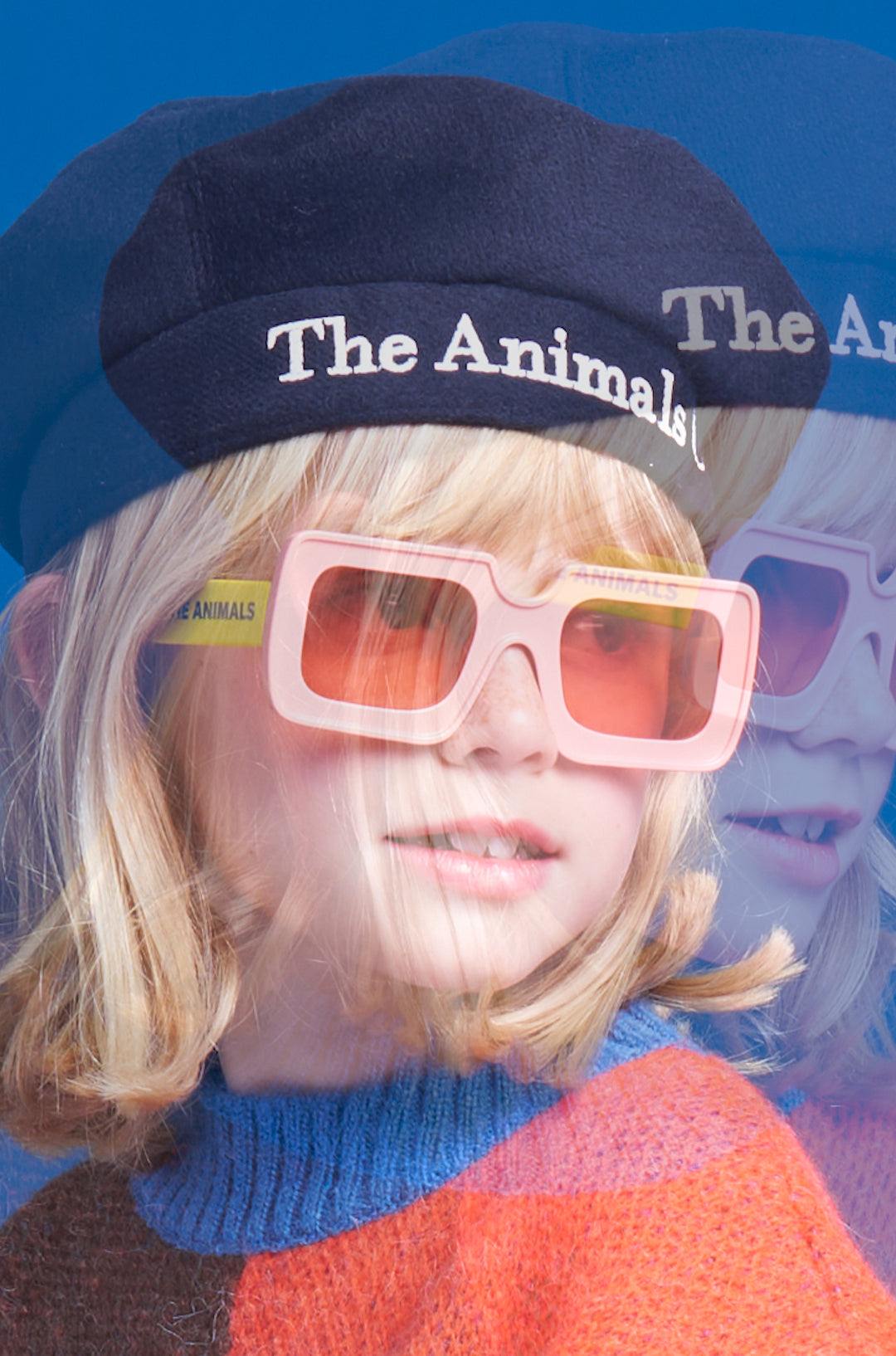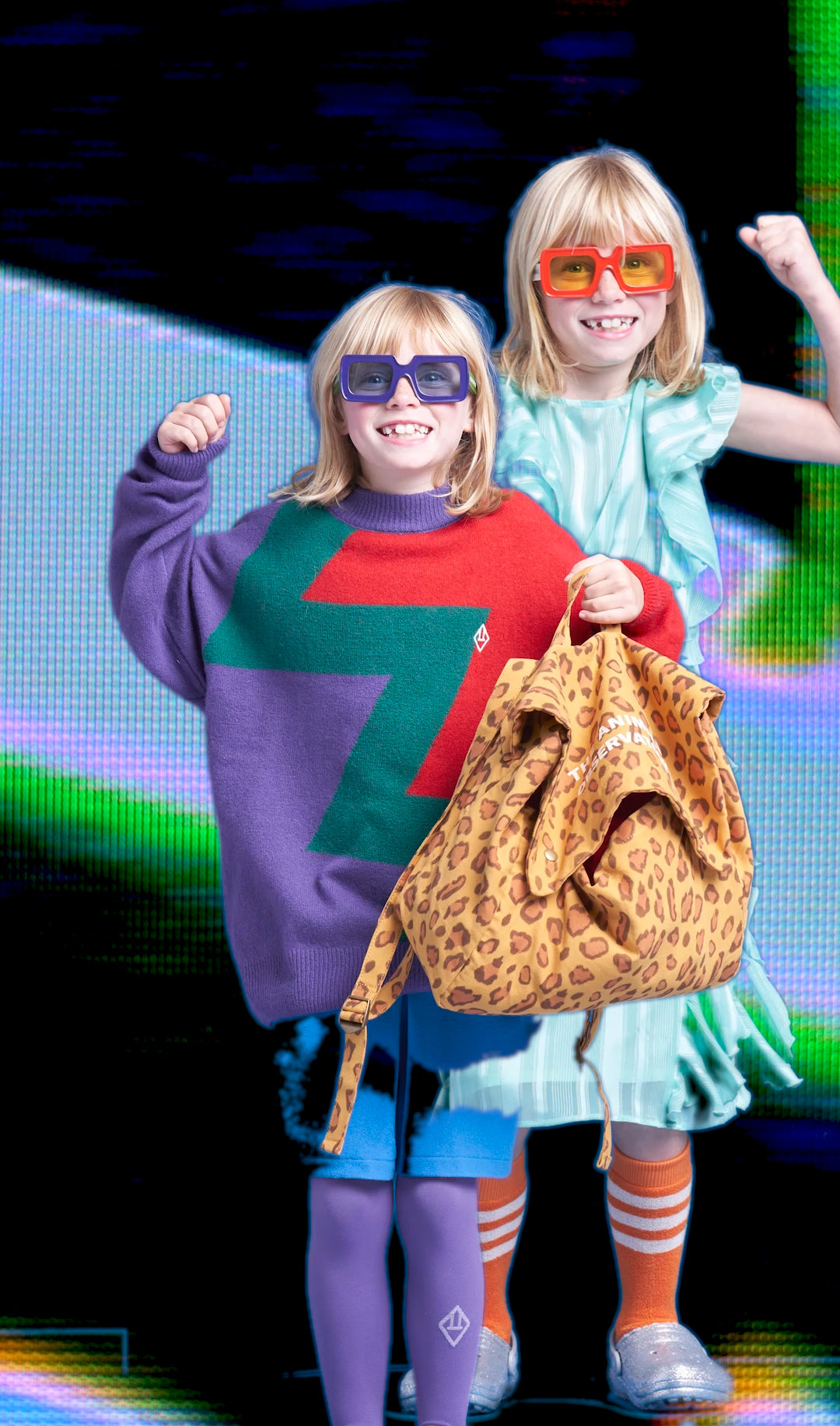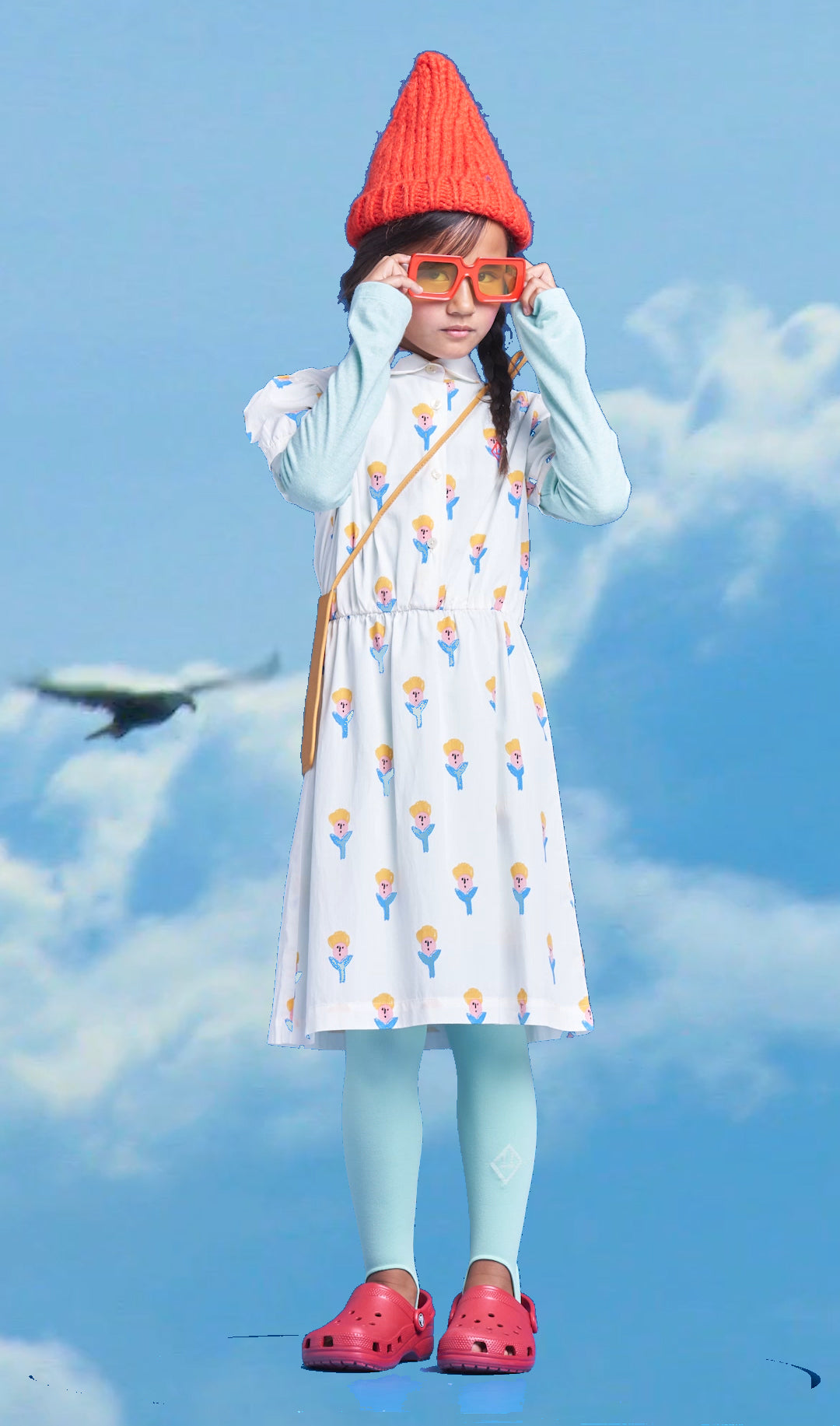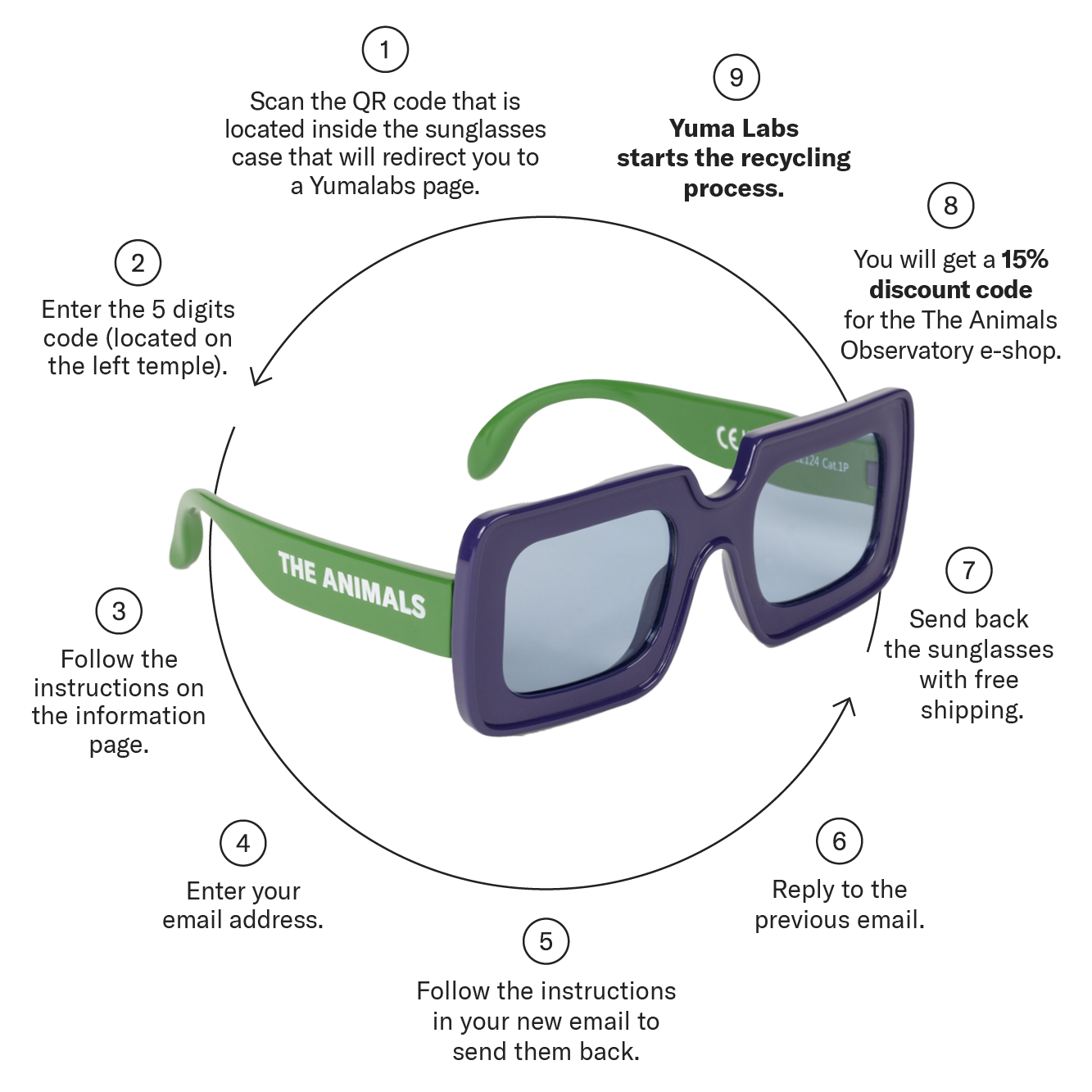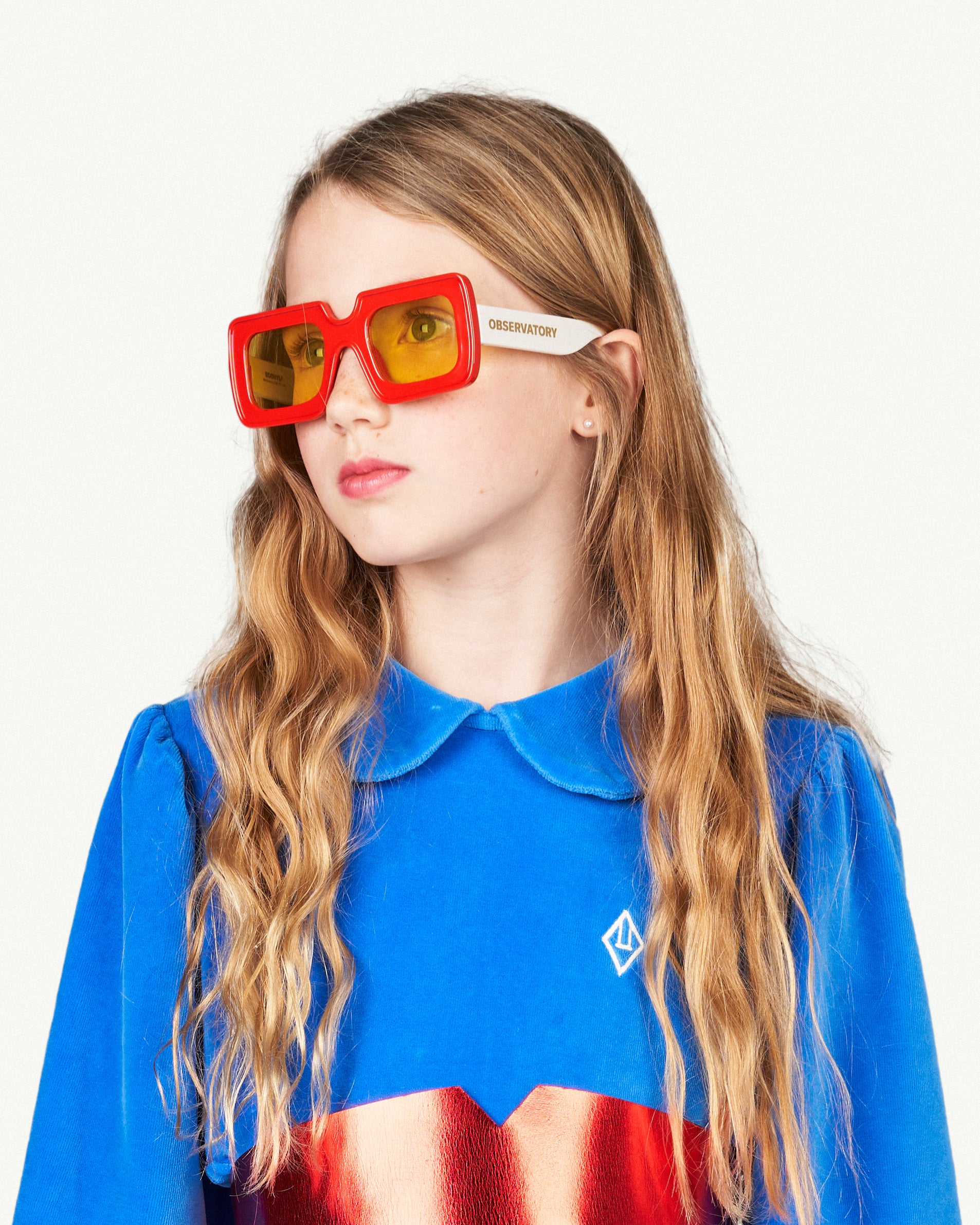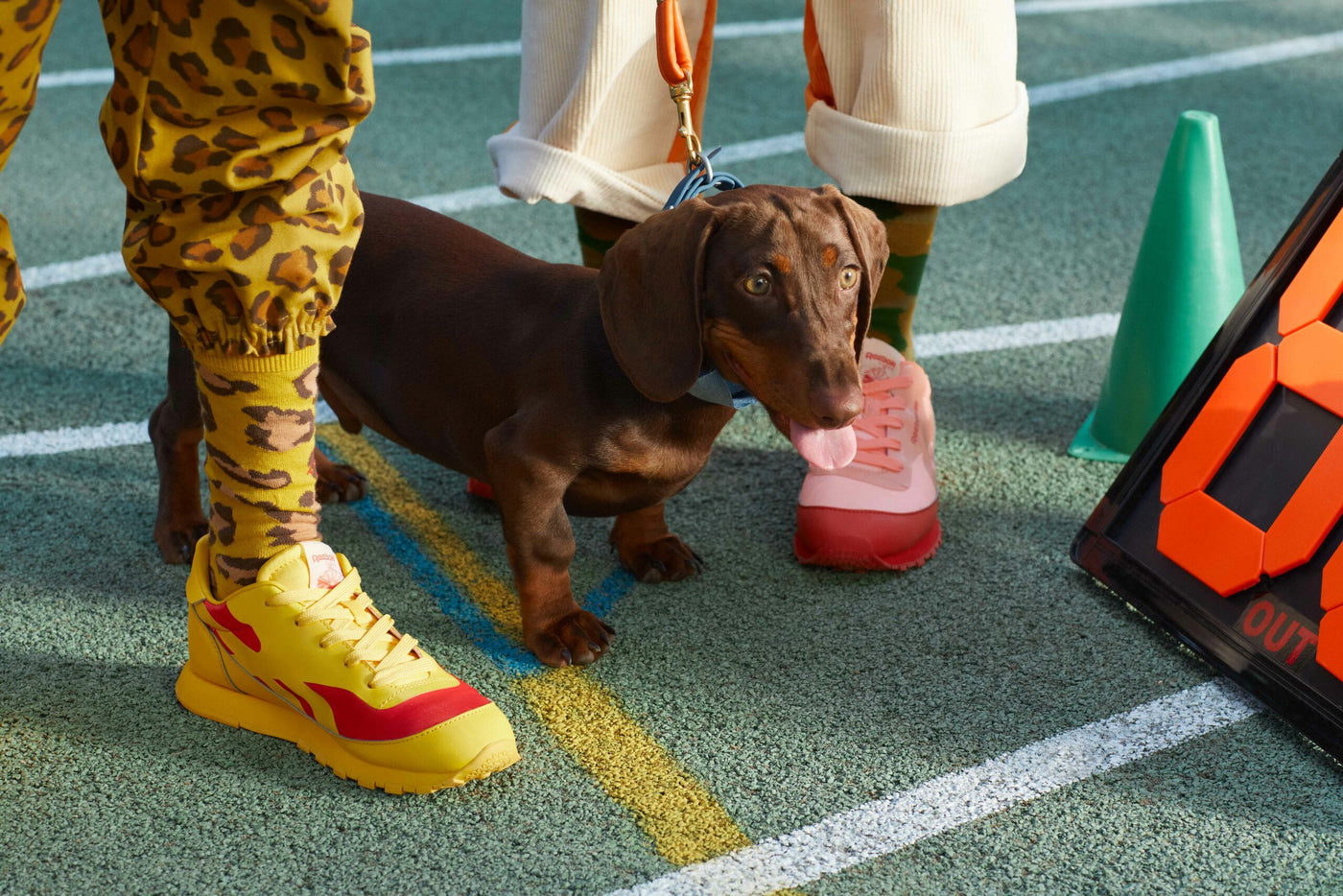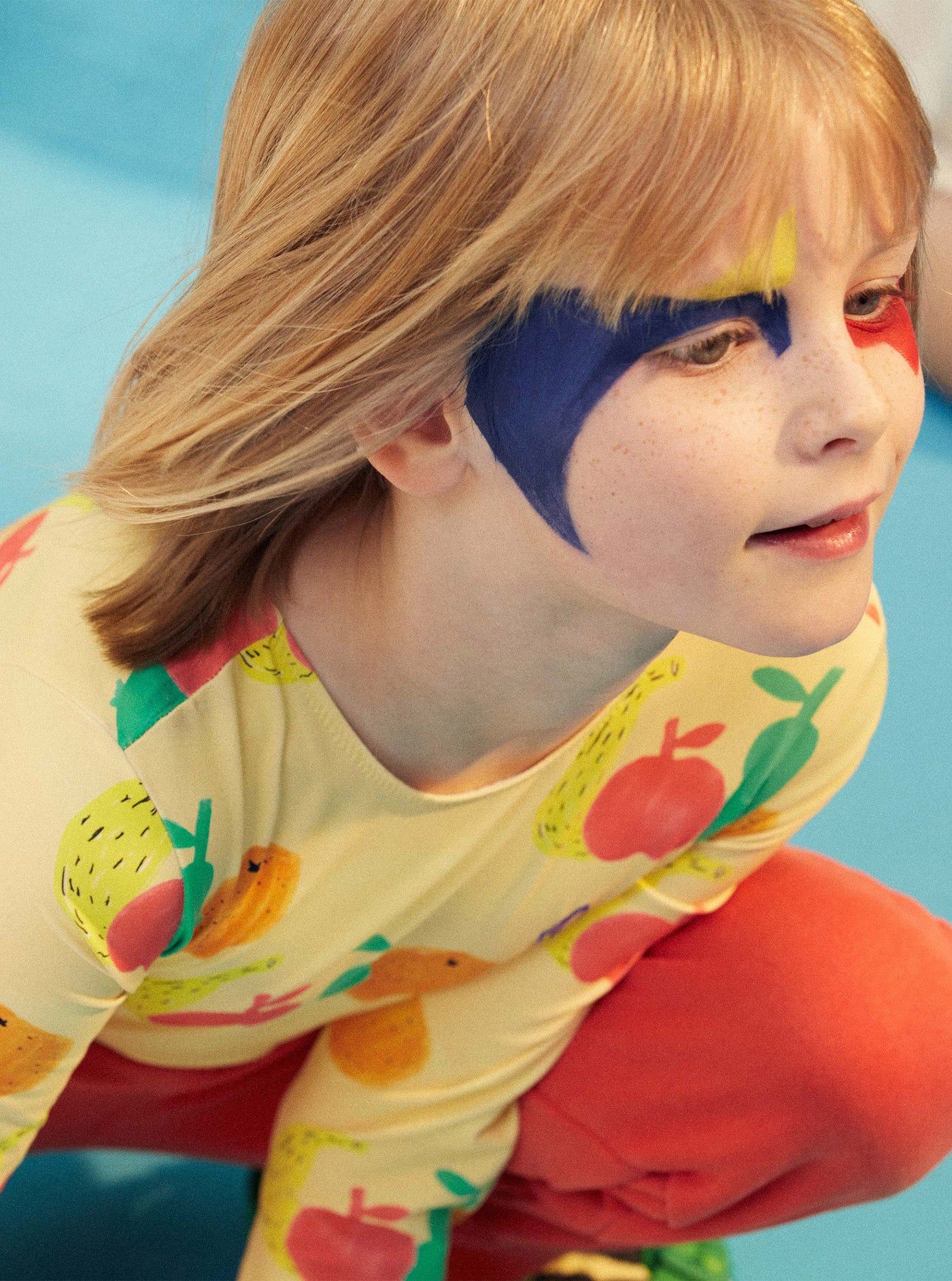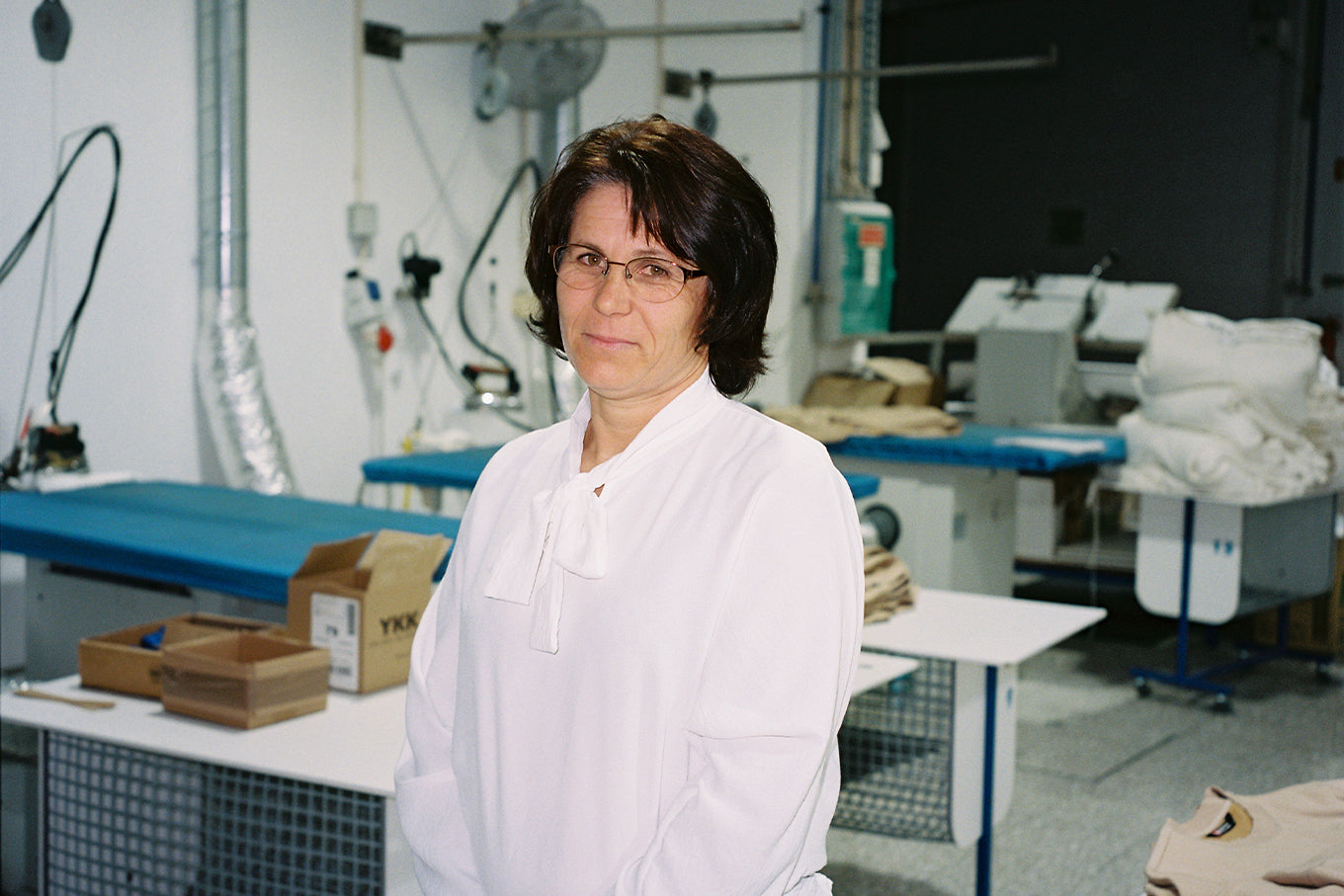Yuma is a town in Arizona located in the western side of the United States, a few kilometres from the Mexican border. With no particular tourist attractions, this city holds the title of being the sunniest place on the planet. For Sebastiaan de Neubourg this corner of the world was the source of inspiration for baptizing his project to create recycled and recyclable sunglasses: Yuma Labs.
As Neubourg explains, Yuma Labs was born from a desire to put the circular economy on the map. For those who ignore this concept, the circular economy is the production model that involves sharing, renting, reusing, repairing and recycling existing materials and products to avoid generating or minimizing waste generation as much as possible. How can we produce a sustainable accessory, but one that is stylish at the same time?
The Animals Observatory x Yuma Labs
Our relationship was born thanks to, curiously enough, the birth of Neouburg’s daughter: “My partner has been a follower of The Animals Observatory since our daughter was born and it occured to me that it might be interesting to join forces”. And once again, wish fulfilled.
This line saw the light in the Spring Summer 2022 due to the synergies shared between the two brands towards sustainability. The Animals Observatory x Yuma Labs are a statement of intent towards a shared vision. From there, the creative team has worked together with the Belgian company to create the three models presented in this collection: Purple, Green and Orange sunglasses.
For the Yuma Labs creator, collaborating with The Animals Observatory goes far beyond a branding alliance. “Working with The Animals Observatory is fabulous because, although we do not sell to children directly, we sell to their parents and, in some way, glasses can be an excuse to educate them about the circular economy and bring children closer to sustainability. In the end, the most sustainable sunglasses are the ones you use as long as possible”.
Yuma Labs found the answer thanks to ©ECONYL (a company that manufactures recycled nylon) and it became a reality through a KickStarter campaign in 2018. Thanks to ©ECONYL, Yuma Labs produces glasses with materials from industrial waste (50%) and post-consumer waste (50%). Initially, the production process involved printing the recycled plastic glasses with 3D printers, but as the project grew, this proved unworkable.
Circular process x divulgation
The beauty of this project, however, does not end here. Yuma Labs offers customers the possibility to return their glasses once they consider that they have reached the final stage of their life.
In this way, users can return their glasses and, at the same time, collaborate to make new ones. Thanks to the return program, Yuma Labs receives the glasses that have reached the end of their life, they disassemble them and are sent back to ©ECONYL so they can go back into the production process to make new ones. In this way, Neuburg and the Yuma Labs team get those who buy glasses to see things literally and figuratively differently. All this is against the background of boosting responsible consumption.
Working with The Animals Observatory is fabulous because... glasses can be an excuse to educate about the circular economy and bring children closer to sustainability. In the end, the most sustainable glasses are the ones you use as long as possible.
Sebastiaan de Neubourg, founder of Yuma Labs
The Animals Observatory x Yuma Labs sunglasses are made of ECONYL® regenerated nylon. It is a flexible recycled material made from a combination of fishing nets, old carpets and waste. This material has the potential to be recycled infinitely, never losing its quality. Using these materials reduces the impact of global warming that nylon generates by up to 90% compared to old petroleum-based plastic materials. Sunglasses are designed to have easy disassembly and recycling. They are also equipped with 100% polarized anti-reflex and anti-scratch lenses. In addition, the glass case incorporates a cleaning cloth made of recycled materials.
The Animals Observatory x Yuma Labs FW22 Collection. Source: The Animals Observatory.
How to return the sunglasses
The collaboration between The Animals Observatory and Yuma Labs also aims to make it easier for customers to return their glasses at the end of their life and obtain a discount for their next purchase. Thanks to this feature, they can also get information about where the production takes place and the materials used to manufacture the sunglasses. Easy.
The glass case has a QR code that customers who want to return the glasses will have to scan. This code leads to a landing page that will ask for the unique digits found on the frame of the glasses. After this step, the user fills in a form where, among other information, enters an email address where they will receive confirmation.
When the return is confirmed, customers can read all the information about the return process as well as details of the manufacturing process and the materials in the “Digital Passport” section, where all the information about the production is explained. In the case of SS22 glasses, glasses can be returned there from March 2023, users can be notified by clicking on the link.
The glasses include a sticker that integrates a prepaid return label to send back the sunglasses. The free payment works independently of the country of origin; it should only be sent via the postal service, as if it were a letter.
Step by step:
1. Scan the QR code inside the glass case
2. Introduce the digits appearing inside the frame of the glasses.
3. Read the instructions for “Digital Passport”.
4. Confirm return via confirmation email.
5. Dispatch from anywhere in the world.
What the future holds
The alliance between The Animals Observatory x Yuma Labs allows the public to become directly or indirectly aware of the importance of the transformative process that the fashion industry is taking towards sustainability. More and more brands rely on sustainable materials to improve their productive processes, and The Animals Observatory is no exception.
For Yuma Labs, however, the key is to improve the transparency of processes and to share knowledge. Neouburg explains that one of the challenges in the sector is precisely to better explain production processes to the public and to get their involvement in reducing waste. “An additional step would be for a second-hand market or repair option to be available before the recycling process”.
With the desire to avoid producing waste and protect us from the sun, the alliance with Yuma Labs is a unique opportunity to start a conversation that goes beyond fashion.
#BeAGoodAnimal


